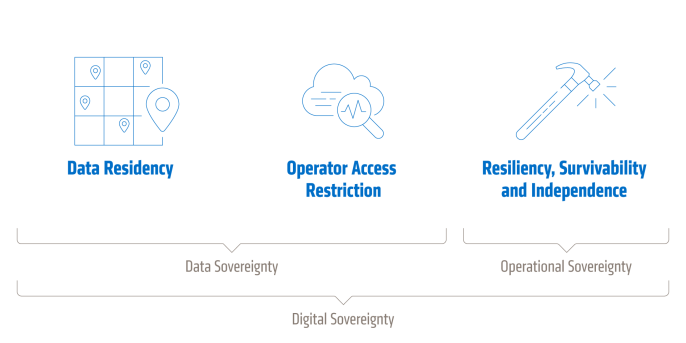The customer is always at the centre of everything we do at adesso. And especially when we talk about IT excellence and the associated cloud, there are many questions surrounding the currently much-discussed and important topic of digital sovereignty.
Digital sovereignty describes the abilities and possibilities of individuals and institutions to fulfil their role(s) in the digital world in an independent, self-determined and secure manner. To this end, the processing of the data required for administration must be guaranteed by modern, functional and trustworthy information technology.
Federal CIO
If we now approach the topic from a cloud-specific perspective, two key pillars emerge: Operational sovereignty and data sovereignty, whereby the latter is further divided into data residency and operator access restriction.
Operational sovereignty involves maintaining operations despite geopolitical instability, such as foreign interference, natural disasters or technical failure.
While data sovereignty addresses issues such as full control over the specific storage location and the exclusion of access by the cloud provider and foreign countries.



